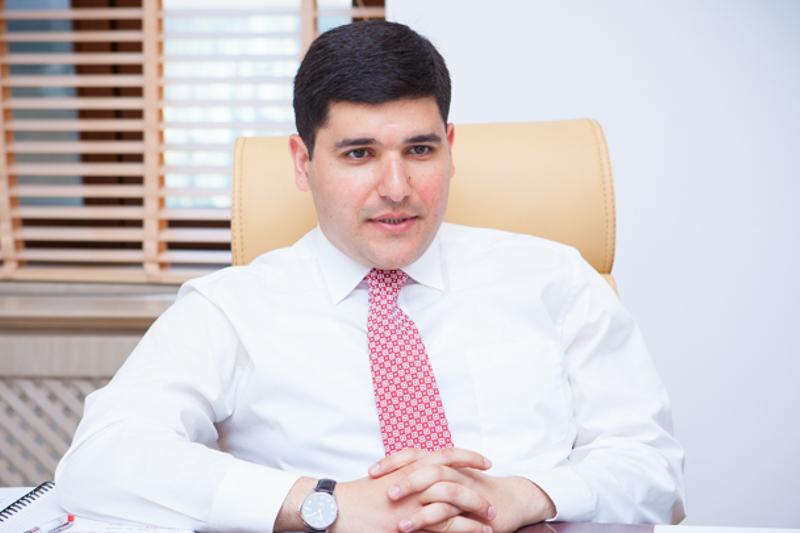"What is permitted for Michel is denied to Orbán?" A perspective from Baku
EU double standards on Azerbaijan and Armenia
Immediately after the parliamentary elections in Georgia, Viktor Orbán, the Prime Minister of Hungary – currently the presiding country in the European Union – visited the country. The EU structure stated that Orbán’s visit was private and did not represent the EU’s position.
Azerbaijani political analyst Farhad Mammadov points out that European Council President Charles Michel’s signature on the Granada statement highlights the EU’s inconsistent approaches toward its own officials.
“Did Charles Michel consult with and receive consent from EU member states before signing the Granada Statement?” he questions.
- Accounts of Georgian employees of the “Atlantic Council” have been frozen
- EU leaders halt Georgia’s accession process over government policies – Pawel Herczynski
- “Genuine communication between Aliyev and Pashinyan in Kazan may be a sign of warming in the conflict.” Opinion from Baku

“Prime Minister Viktor Orbán visited Georgia the day after the parliamentary elections. As the current EU Council president by rotation, his six-month term role places him in the spotlight.
The EU clarified that his visit was private, not reflecting the position of the entire EU. This stance was backed by 13 foreign ministers from member states, including the Czech Republic, Denmark, Germany, Estonia, Finland, France, Ireland, Lithuania, the Netherlands, Luxembourg, Poland, Portugal, and Sweden.
The essence of the statement was that Prime Minister Viktor Orbán’s previous visits to Russia, China, and the United States, along with his current trip to Georgia, should be viewed as those of a private individual who also happens to be the leader of Hungary, rather than as representing the European Union.
The central institutions of the EU are left confused and are reacting irritably to the Hungarian premier’s visits.
However, how does the European Union outline the procedures for determining when officials are representing the EU and when they are not?
According to the logic of the central EU institutions, for instance, the country holding the EU presidency (Orbán) or an official at the level of a commissioner, the head of the Commission, or the Council president (currently Charles Michel) should discuss their foreign visits, the statements they make, and, most importantly, the signatures they affix to various documents with EU member states.
Decisions in the EU are made by consensus, meaning that if one country opposes, the decision is not adopted.
So we have the example of Viktor Orbán, who makes visits, meets with leaders of other countries, and makes statements but does not sign anything as the leader of the country holding the EU presidency.
This situation has caused irritation in other EU capitals and among leadership in Brussels.
But what about Charles Michel’s signature on the Granada Statement?!
Did Charles Michel consult with and receive consent from EU member states before signing the Granada Statement?
On October 5, 2023, following the summit of the European Political Community (EPC) in Granada, Spain, attended by the leaders of France, Germany, the EU Council, and Armenia (Emmanuel Macron, Olaf Scholz, Charles Michel, and Nikol Pashinyan respectively), and in the absence of the presidents of Azerbaijan and Turkey (Ilham Aliyev and Recep Tayyip Erdoğan), a statement was adopted that noted the need for “providing additional humanitarian assistance to Armenia due to the consequences of the recent mass displacement of Karabakh Armenians.” The document emphasizes that these “refugees” should be able to exercise their right to return to their homes and places of residence “without any conditions, under international monitoring, and with due respect for their history, culture, and human rights.”
Two questions arise:
- What procedures are in place within the EU regarding the powers of the President of the European Council?
- Does their signature have implications for EU officials?
The Granada statement has established a framework for EU officials in their approach to relations with Azerbaijan and Armenia. It is important to note that these countries are not EU members and do not officially aspire to join the EU.
How legitimate is Charles Michel’s signature on the Granada Statement? Since the statement is published on the official EU website, and it is indicated at the top that it was adopted on behalf of the Council President, it raises questions.
It appears that the Prime Minister of Hungary (a full EU member and the country holding the EU presidency) has been denied the same actions that Charles Michel undertook in Granada.
The answers to these questions are relevant for the EU and its future leadership, especially if they wish to restore their positions in the South Caucasus region as a whole, and between Azerbaijan and Armenia, in particular.
The Granada Statement has, on one hand, boxed EU diplomacy into certain parameters, while on the other hand, it has undermined all diplomatic activity in this direction.”


















